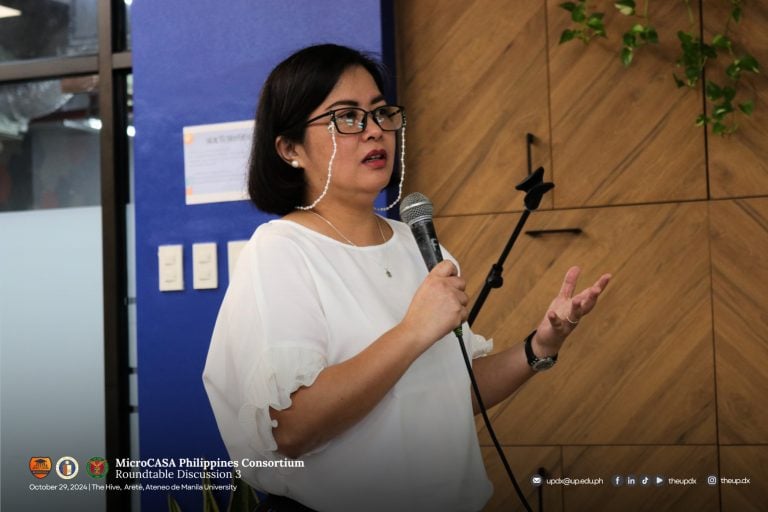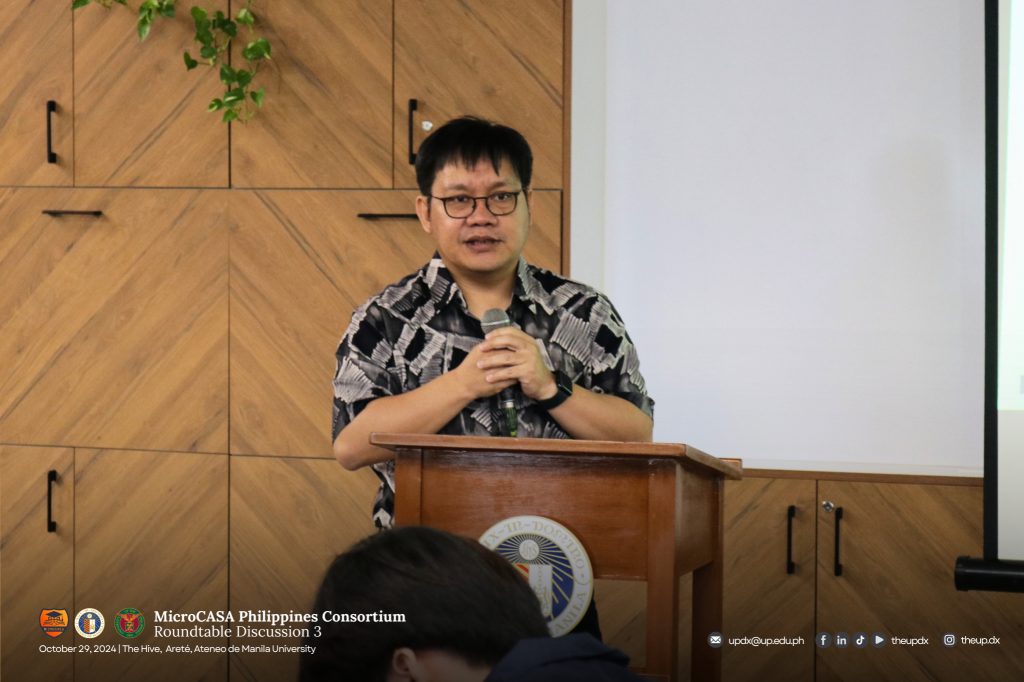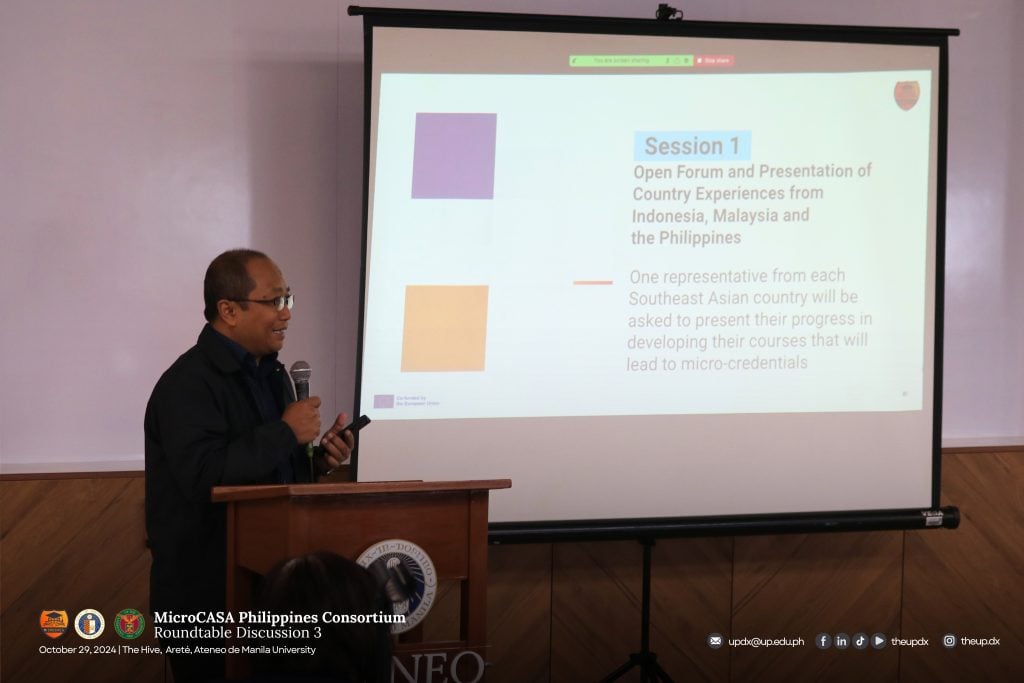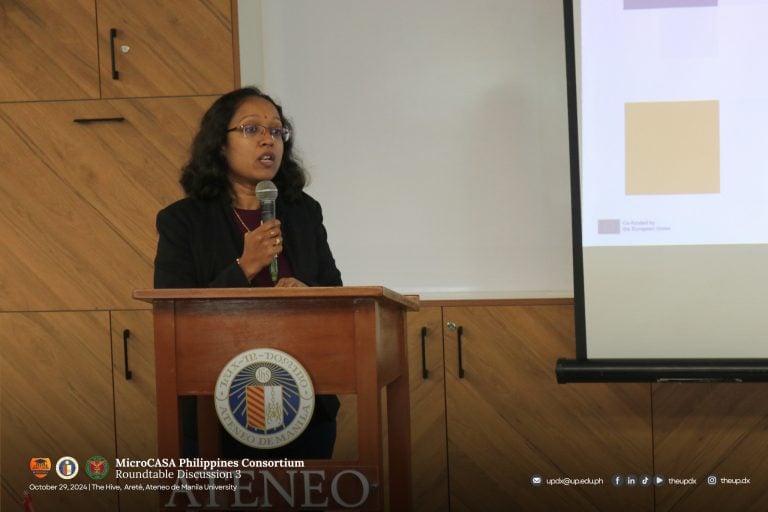Beyond Degrees: How Short Courses Are Shaping Lifelong Learning in Southeast Asia
9 December 2024 | Veronica Consolacion
Representatives from MicroCASA Southeast Asian partners share insights into the evolving landscape of micro-credentialing at a three-day consortium in Manila.
QUEZON CITY, Philippines – The second day of the MicroCASA Consortium, hosted by Ateneo de Manila University (ADMU) on October 29, brought together over 50 educational leaders and policymakers from six Southeast Asian universities and four European partner institutions. The sessions focused on technical presentations and discussions about implementing micro-credentials and digital badges in higher education, offering regional and global perspectives on learning and skills needs.
This followed the opening day’s roundtable discussion of the “White Paper: Action Plan for Micro-credentials Adoption in Higher Education for Southeast Asian Countries,” which explored strategies for integrating micro-credentials in higher education institutions to foster lifelong learning.
Read about what transpired in the three-day consortium here: https://fmds.upou.edu.ph/archives/news-and-events/7559/
Representatives from three MicroCASA partner institutions in the Philippines – the University of the Philippines Open University (UPOU), UP Digital Transformation (UP Dx), and ADMU – are joined by policymakers and educators from Southeast Asia and Europe. The session began with a lecture titled “Digital Badges and Credentials: An Overview Across Time and Around the World,” delivered by Dr. Carlos Delgado Kloos of Universidad Carlos III de Madrid (UC3M). In his lecture, Dr. Kloos defined micro-credentialing, tracing its development globally and analyzing its current state in Europe.
He highlighted the importance of standardized digital badges and credentials in Europe as a pathway for skills recognition across institutions and industries, reinforcing the role of micro-credentials in supporting lifelong learning and enhancing workforce mobility. Despite having an operational definition of micro-credential, Dr. Kloos pointed out that the definition may still vary based on regional context, underscoring the importance of having a clear definition..
The session concluded with a report outlining the key achievements and challenges in micro-credentialing across Southeast Asian countries, focusing on the Philippines, Indonesia, and Malaysia. The summary is as follows:
Philippines
Philippine higher education institutions are expanding micro-credential programs, with the University of the Philippines Open University (UPOU) leading several key initiatives. Dr. Joane V. Serrano, Dean of the Faculty of Management and Development Studies, reports that UPOU’s micro-credential program in Nursing Education has already piqued the interests of multiple higher education institutions resulting in requests for training and capacity-building.

Dr. Serrano of UPOU discusses the status of micro-credentials in the country and the University
UPOU’s development of a Micro-credentials Roadmap represents a forward-looking shift toward alternative credentials in Philippine higher education. Complementing these efforts, the Technical Education and Skills Development Authority (TESDA) has established formal frameworks via key circulars: Circular No. 058 s. 2022 outlines competency staking for micro-credentials and Circular No. 48 s. 2021 defines micro-credentials as modular or stackable learning units.
The success of these initiatives hinges on strengthened government policies and increased industry partnerships. While institutions like UP Dx, UPOU, and ADMU are collaborating on digital badge integration, experts emphasize that sustainable micro-credential programs require robust policy frameworks and active engagement from industry stakeholders to ensure credentials meet evolving workforce demands.
Indonesia
Digital micro-credential programs are gaining momentum across Indonesian universities, as illustrated by initiatives at two institutions. At Universitas Sam Ratulangi (UNSRAT), Dr. Alwin Sambul shared the transition from Moodle to LearnPress, a WordPress-based platform designed to offer online courses. The initiative aims to establish a university-level micro-credentialing system focused on external engagement, currently under pilot testing with oversight from UNSRAT’s teaching office. Meanwhile, at the Universitas Brawijaya (UB), Dr. Achmad ‘Abazh’ Basuki highlights the incorporation of micro-credential courses into traditional curricula. The university’s flexible learning program requires students to complete micro-courses equivalent to 45 hours of learning beyond their prescribed coursework.


Dr. Sambul and Dr. Basuki presented about
micro-credentials in Malaysian universities
Complementing these institutional efforts, the SOI Asia Project–together with Dr. Achmad Husni Thamrin and Dr. Andrey Ferriyan of Keio University–has been enhancing regional digital credentialing through Inxignia. This platform verifies credentials across SOI Asia’s diverse programs, including information technology, marine sciences, and disaster management. Working with UNESCO since 2008, SOI Asia aims to leverage Inxignia to validate skills development across Southeast Asian universities, marking a significant advancement in digital credential standardization.
Read more about the hands-on workshop: https://www.soi.asia/strengthening-microcredentials-presence-in-asia-pacific-highlights-from-inxignias-presentation-at-microcasa-consortium/
These initiatives reflect a broader national strategy to provide learners with supplementary skills outside formal education. The program has gained significant support from the Ministry of Education and industry partners like Google Indonesia. While they are yet to implement digital badges, universities are working with the Ministry to formalize credential recognition within academic programs. Despite the Ministry’s endorsement of micro-credentials since 2020, significant challenges remain. Dr. Alwin and Dr. Abazh identify a critical gap in defining institutional processes and accreditation standards, facing common obstacles such as unclear definitions and faculty resistance–challenges shared across Southeast Asian nations.
Malaysia
Malaysian higher education is advancing dual-track micro-credentialing, with Universiti Sains Malaysia (USM) implementing both modular and stackable approaches. Dr. Anusha Achuthan, lecturer at USM, reports that the University’s modular courses currently issue digital certificates, while stackable credentials require digital badges as they are accumulated toward a degree.

Dr. Anusha Achuthan reports on the status of micro-credentials in the Universiti Sains Malaysia
USM has strengthened its digital infrastructure through a partnership with OpenLearning Global to implement badge accreditation using Open Badges 2.0 standards, with plans to upgrade to version 3.0. The University manages these offerings through its dedicated USM Micro-Credential Online Learning Portal (https://learning4life.usm.my/). The University’s program has gained traction in professional development, particularly in nursing, where stackable modules now offer Continuing Professional Development (CPD) points. This advancement represents a strategic step toward integrating micro-credentials into formal academic pathways.
Malaysia’s flexible credentialing strategy exemplifies its active response to industry demands by offering both quick-completion modular courses and stackable credentials. USM is creating multiple pathways for workforce development while maintaining academic rigor through standardized digital badge verification.
Read more about micro-credentialing in Malaysia here:
The reports from MicroCASA SEA partners demonstrated how micro-credentialing thrives through government-led frameworks, industry partnerships, and established credential benchmarks. While standardization challenges persist, the Consortium’s efforts mark a significant step toward building an interoperable system for skills recognition and responsive educational pathways in Southeast Asia.


